Has Brooklyn Paramount Theatre Renovation Been Permanently Delayed?
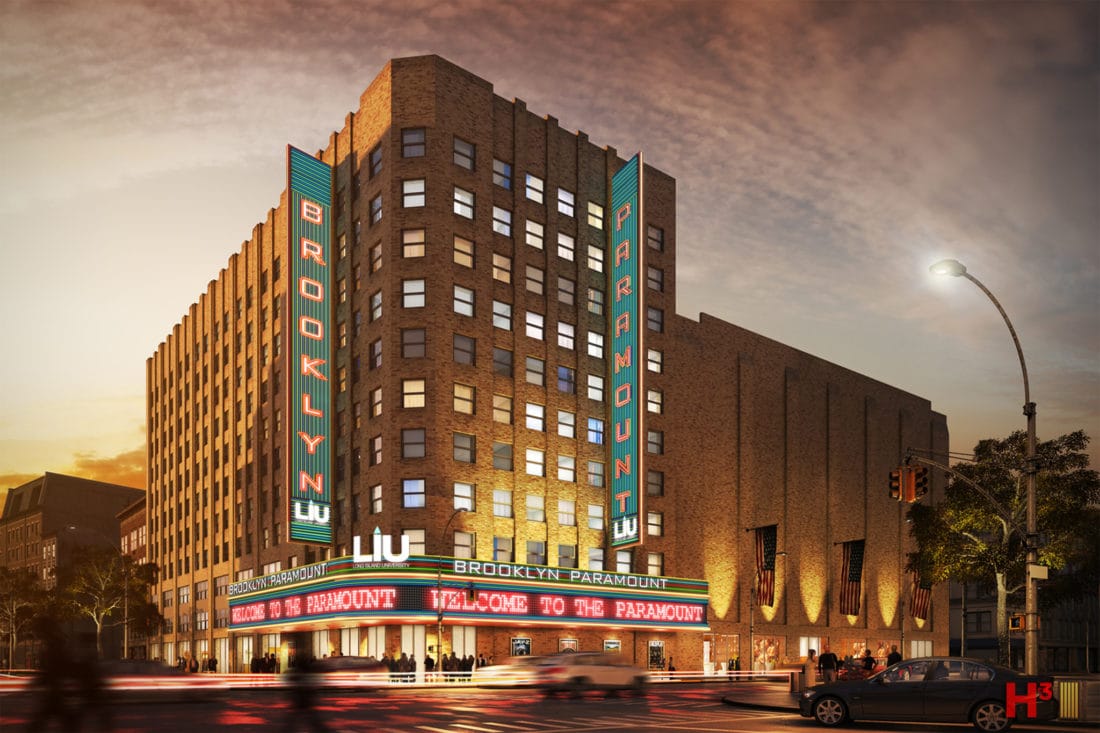
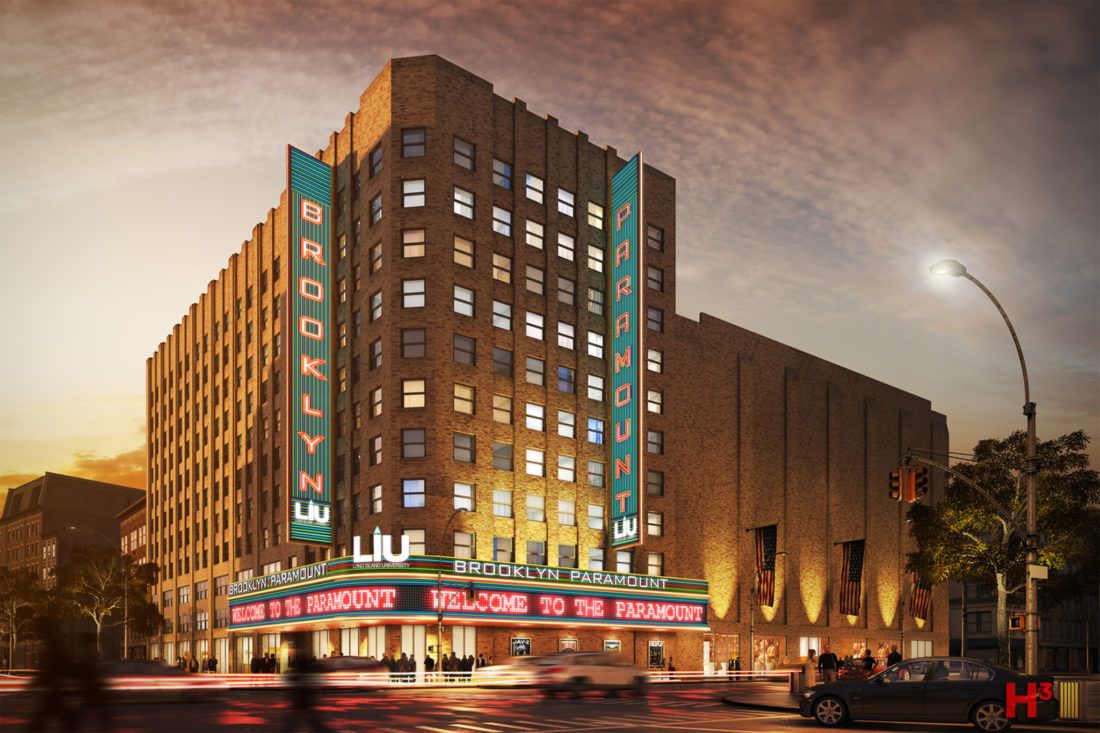
Nassau Coliseum, owned by the county and operated by Russian billionaire Mikhail Prokhorov’s company Onexim, is closing indefinitely in the wake of the coronavirus pandemic. Onexim is seeking new investors to take over operations and pay off the building’s renovation debt, New York Post reported earlier this week.
The decision signals another retreat by Prokhorov, who once operated the Barclays Center in Brooklyn, from his one-time goal of becoming a venue magnate. It also raises questions about Prokhorov’s renovation of Long Island University’s Brooklyn Paramount Theatre in Downtown Brooklyn, which was announced in 2015 but has been delayed multiple times since.
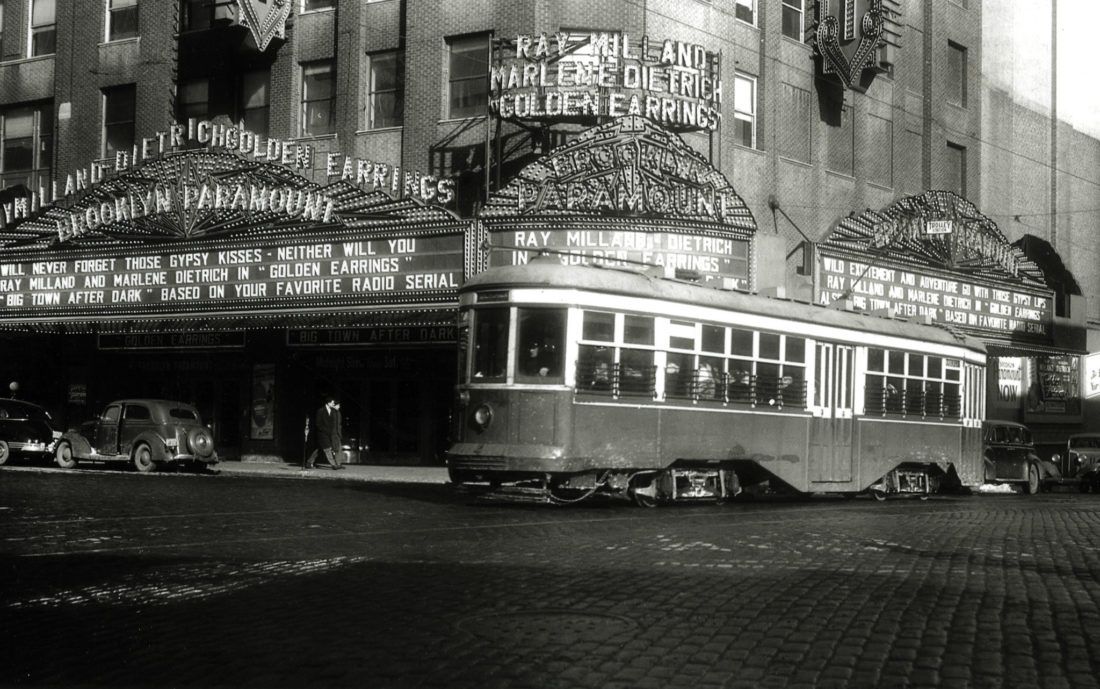
LIU’s web site still claims that the Paramount was expected to reopen in mid-2019. Similarly, the web site of the architecture firm H3, which has worked on the Brooklyn Academy of Music and Lincoln Center Theatre, cites a 2019 opening.
What’s the current schedule and how far along is renovation? Queries to Onexim and Long Island University did not get a response. (An anonymous Twitter account critical of the LIU president, “Fire Kim Cline,” alleges that “the deal fell through,” though we have not been able to verify.)
Big Plans
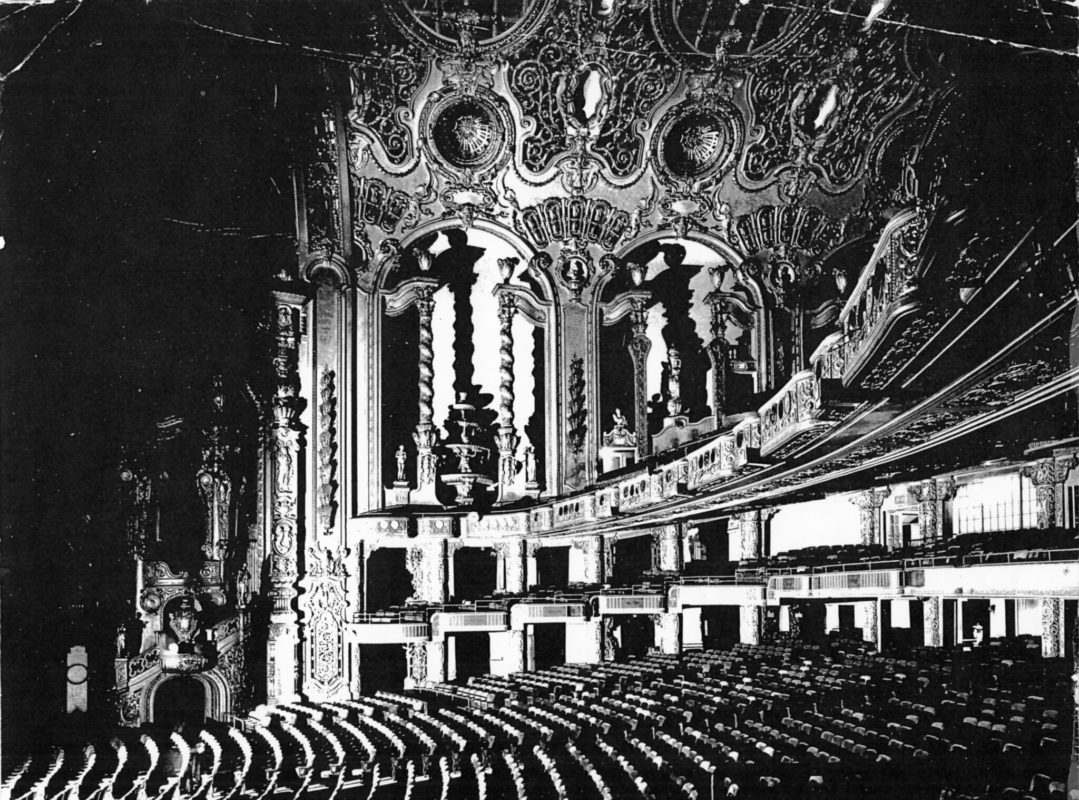
The 3,000-seat theater, located at DeKalb and Flatbush avenues across from Junior’s Restaurant, operated 1928-1962 as a live performance venue, with Rococo-style ceiling and wall trimmings. It then became part of LIU Brooklyn’s campus, serving as a multi-purpose space and even a gym.
In April 2015, LIU announced a planned “24-month renovation and rejuvenation” by Paramount Events Center (PEC), a joint venture between Barclays Center developer Forest City Ratner and Prokhorov’s Onexim Sports and Entertainment, at that point the partners operating the Brooklyn arena.
The renovation would move the theater’s entrance back to the corner of Flatbush and DeKalb; a loge level balcony and box office would be reestablished; and the lighting, restrooms, and sound systems would be updated.
The renovation, said to cost $50 million with an opening expected in 2018, would be funded solely by PEC.
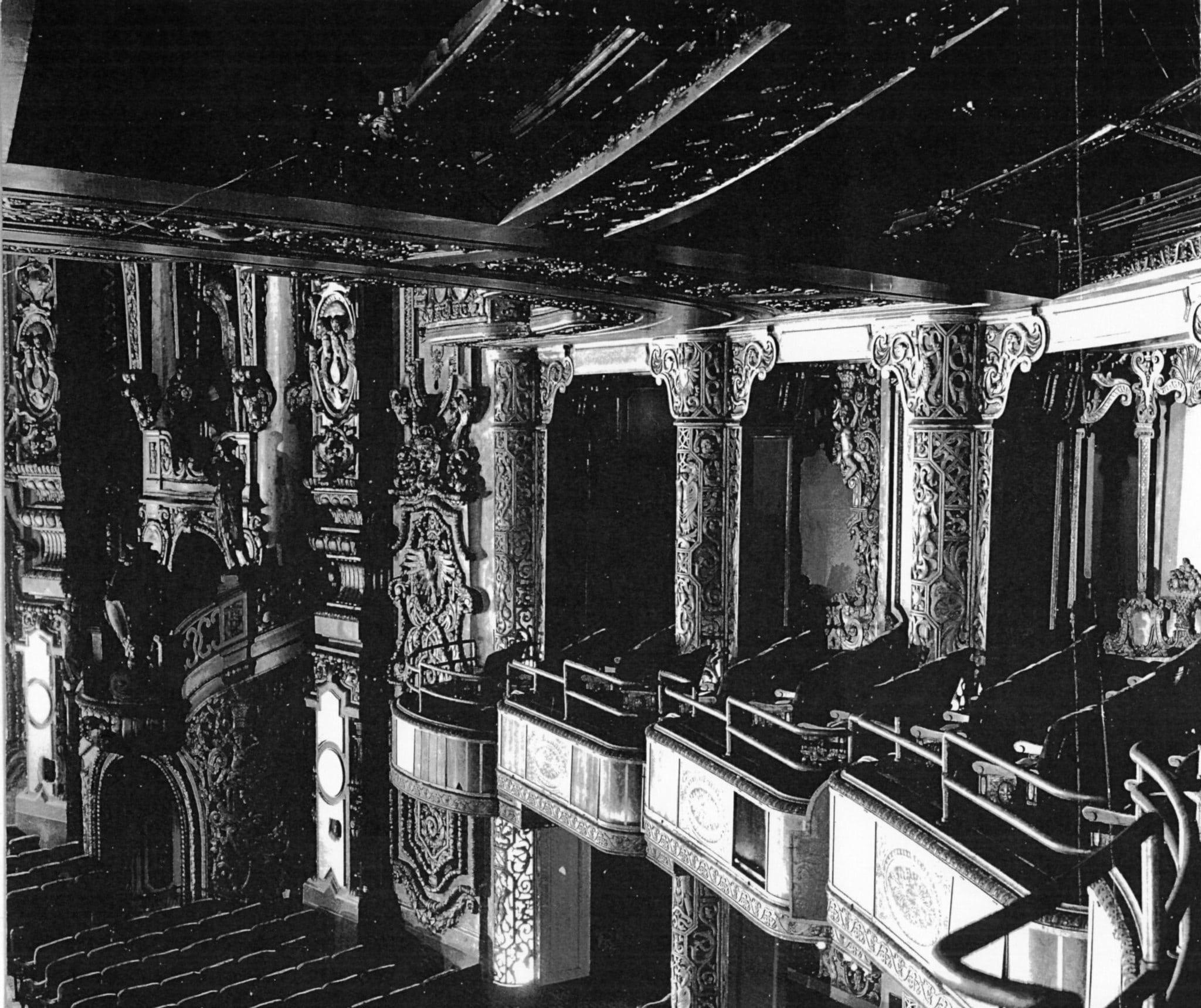
The university saw the new venue as creating “endless opportunities for the LIU Brooklyn community,” offering students hands-on experience in arts management, media arts, performing arts, and marketing, as well as hosting private programs and offering students free or discounted tickets for certain events.
Then Forest City retreated. Eventually, Prokhorov completely bought out Forest City’s majority share of both the arena operating company and the Brooklyn Nets, as well as Forest City’s share in the Nassau Coliseum operating company.
But progress at LIU’s property came slowly. A May 2017 announcement that renovations would begin in Fall 2017 noted “an anticipated opening before 2019.” The groundbreaking was in June 2018, with the 2019 estimated reopening. The project as of then was the responsibility of Prokhorov’s company BSE Global.
Part of Performers’ “Progression Ladder”
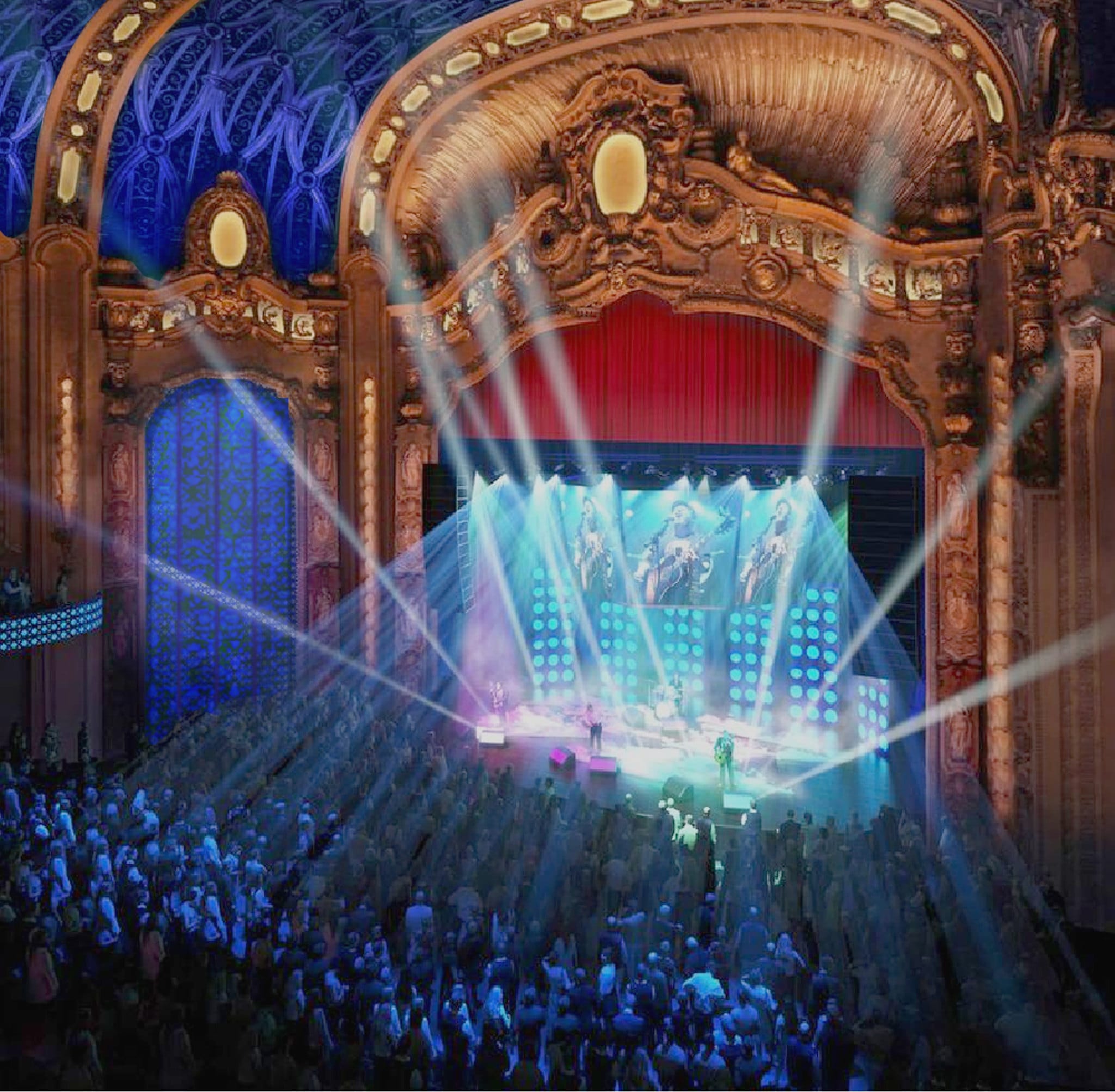
The Paramount was once part of a larger plan. In September 2018, Barclays Center CEO Brett Yormark, described on a podcast “a progression ladder” of different-sized venues for performers who might ultimately play the Barclays Center and Nassau Coliseum.
“In order to do that,” he said, “we’ve had to diversify our portfolio. About two years ago, we acquired Webster Hall, with our partners AEG. We also have the Downtown Paramount in Brooklyn.” That, he said, would allow emerging artists to “start at Webster, then go to Paramount, and make their way right up to Barclays.”
But that vision didn’t last. In April 2018, Prokhorov sold 49% of the Brooklyn Nets to Alibaba co-founder Joe Tsai, with the expectation that Tsai would buy the rest within three years, at the astonishing valuation of $2.3 billion. By August 2019, Tsai bought the rest of the team, earlier than expected, as well as the Barclays Center operating company. Yormark departed.
The “progression ladder” was dismantled even before Prokhorov’s company pulled back from the Nassau Coliseum, while Webster Hall reopened in early 2019, with its renovation cost well over budget.
Venue Questions
If the Paramount had reopened, it wouldn’t be operating now. Since March, all large venues in New York have had to pause because of the coronavirus pandemic. It’s unclear what precautions, such as socially distanced seating, would be required to enhance safety and attendee confidence.
For now, the closest comparable local venue to the Paramount is the Kings Theatre in Flatbush, which has, perhaps optimistically, rescheduled events to re-start in September.
Meanwhile, the Barclays Center has just surveyed those on its mailing list about what safeguards they feel are necessary to return to the venue. Its website currently lists two events for September, though it’s hardly clear they will go forward; the Brooklyn Nets are expected to resume play next month in a carefully constructed NBA “bubble” in Orlando.
The delays in renovation might have a silver lining if, assuming the Paramount renovation proceeds, the venue would reopen after the pandemic is significantly resolved.




